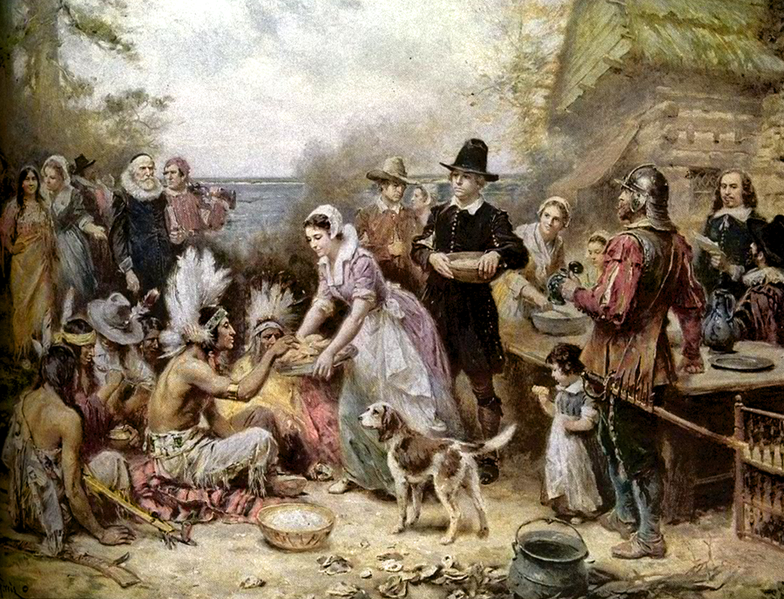Honoring the Truth about Thanksgiving
Dismantling the thanksgiving myth and bringing a new understanding to the table.
November 26, 2020
When most people think of Thanksgiving, they imagine colorful turkeys they made out of construction paper in elementary school, about gathering around a table filled with food that took all day to prepare, and about sharing all the things they are grateful for with friends and family. While there’s nothing wrong with partaking in acts of gratitude or sharing a meal, most Americans do not know, or willingly choose to ignore that Thanksgiving is a myth that continues a long history of the erasure of Indigenous people.
The United States has, since its founding, attempted to silence the voices of people of color and cover up the unjust and often horrifying acts it has taken against them. In fact, the U.S. does more to acknowledge the death of turkeys when the president pardons one each year than it does millions of indigenous people as a result of colonization.
This country that prides itself on its diversity of cultures and identities ironically has attempted to strip Indigenous people of their own cultural identities through the perpetuation of myths, such as the “Thanksgiving Story” and by engaging in shameful practices such as forced removal, genocide, and the creation of reservations and boarding schools.
This is usually not what comes to mind when most people think about Thanksgiving and there is a deliberate reason for that. The history of Indigenous people is either glossed over in history books or left out completely because the United States has refused to acknowledge and educate its citizens on the reality of systemic racism. Sure, it is much easier to present a classroom of second graders with a song or picture book about how Native Americans and pilgrims shared a meal together in peace and harmony, but the cost of this story, a truly disturbing history depicted through a warped fairytale lens, is much greater than most people understand.
Americans have been indoctrinated to believe a false narrative crafted by people who wanted to maintain their own power and comfort. American mindsets have been colonized to see most of the United States’ history as heroic, and are taught legends that glorify certain figures such as Cristopher Columbus, who never even set foot on North America’s mainland. Furthermore, the way that Americans are fed this distorted story starting from a very young age makes most people feel uncomfortable or become defensive when asked to consider the real history behind the holiday.
It is a privilege to be able to forget the genocide and erasure of Indigenous people and see Thanksgiving as the lighthearted, consumerism driven holiday that it has become. So when celebrating it this year, bring more to the table than a jar of cranberry sauce or a bowl of mashed potatoes. Instead, bring an understanding of the real history behind Thanksgiving and a willingness to talk about it with your loved ones. As you go around offering up gratitude, add words of acknowledgment that we are on the lands of people who lived before us, and still among us.

